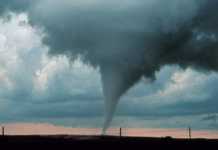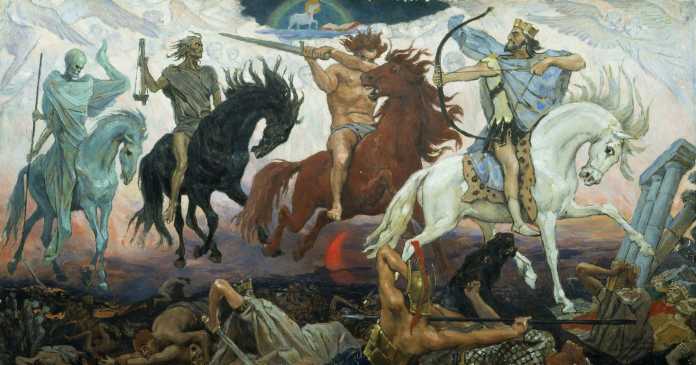A recent article from Breitbart describes a study that found people are less likely to display concern over climate change after being shown apocalyptic messaging about potential future impacts. While it’s only a single study, the results are consistent with alarmists’ own reports that say exaggeration of climate impacts actually discourages people from supporting the climate cause, whether due to narrative fatigue or hopelessness. That combined with the fact that the central claim itself–that climate change is producing apocalyptic effects– is also false, makes it easy for laypeople to ignore alarmist claims.
In the article, “Study: Catastrophic Climate Warnings Fail to Shift Attitudes,” Breitbart reports that “[a] simulation based on apocalyptic images designed to highlight ‘the disastrous effects of climate change’ had the opposite impact on those who viewed it and failed to shift attitudes, a study from Singapore Management University details.”
In the study, researchers created a video simulation of Hong Kong being catastrophically flooded with storm surge, something the researchers claim could happen in the future due to climate change. Instead of frightening people into being more concerned about how climate change might hurt them, participants actually were less fearful after viewing the simulation. Some said it was because they didn’t think human-induced climate change was real, others said the impacts would happen too far in the future to be worried about, and another group said they lived too far above sea level to worry about storm surge anyway.
Breitbart reports that the researchers who conducted the study were disappointed in the results.
One of the report’s authors, Dr Terry van Gevelt, told Eco-Business.com the simulation should have provided “the wake-up call needed to modify individual behaviour and support costly climate adaptation and mitigation measures.”
Instead the result was exactly the opposite.
These results are not altogether surprising. Multiple media outlets, even those which usually hype an extreme cataclysmic vision of the future under climate change, recently reported that young people have become increasingly resistant to climate action as the media continues to promote more alarm. As reported by Climate Realism in “Multiple Outlets Admit “Catastrophe” Narrative is Counterproductive,” activist journalists are finding that a fatalist, or “doomer,” perspective has begun to emerge as a lack of massive societal upheaval fails to materialize the way activists have demanded. This leads to people who otherwise would be sympathetic to their movement checking out instead, thinking that there is nothing that can be done to stop climate change.
As Climate Realism has repeatedly shown, (here, here, and here, for recent examples) during the past century-or-more of warming, none of the so-called “disastrous effects” of climate change have materialized, so perhaps stopping the Earth’s climate from changing, as it has for millions of years, isn’t so urgent.
Additionally, despite constant media fearmongering, climate change consistently ranks last among issues of concern in public opinion polls. Over recent years, polls conducted by The Washington Post/ABC, Gallup, The New York Times, and others, consistently show that while there is some concern, most voters rank climate change among their least pressing issues. Those results are the same globally—in a 2016 United Nations poll, climate change again ranked dead last among world issues.
Breitbart did a solid job reporting on the Singapore Management University study, this kind of information is vital to note when the majority of climate-related journalism is focused on convincing the public that there is a consensus—not just the alleged (and false) scientific consensus—but a consensus among laypeople that there is a looming catastrophe and that we need immediate and extreme action. No such public consensus exists, the opposite is true; most people consistently rank climate change as a low-priority issue, and are not overly impressed with computer simulated apocalypses.



















